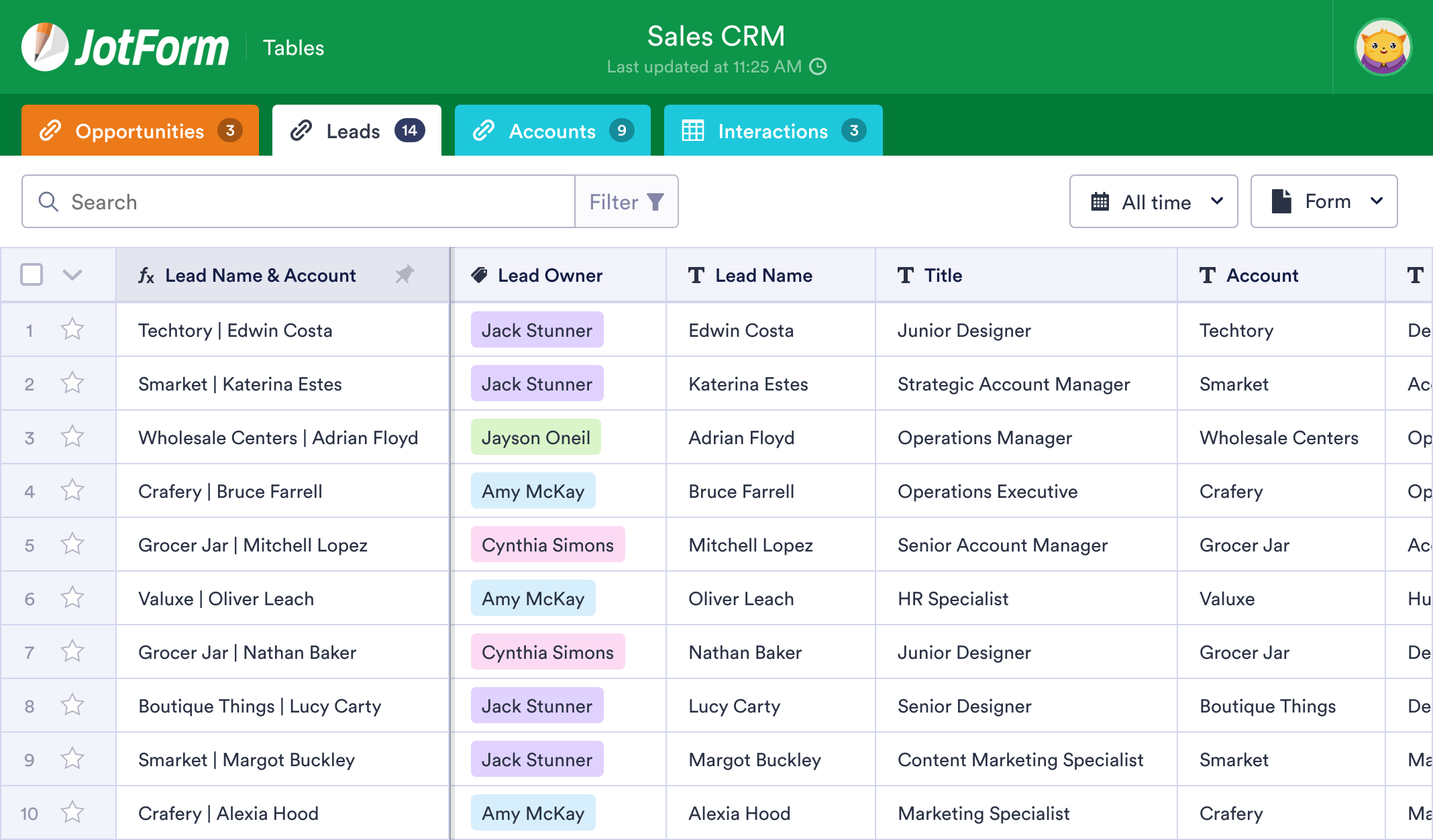CRM for field sales takes center stage in this captivating discourse, inviting readers to embark on an adventure filled with insights, practical guidance, and inspiring examples. As we delve into the realm of customer relationship management tailored specifically for field sales teams, prepare to witness a transformative journey that empowers you to elevate your sales performance.
Throughout this exploration, we will uncover the myriad benefits of leveraging a CRM for field sales, dissect its essential features, and demonstrate how it can revolutionize your team’s productivity. Join us as we navigate the complexities of choosing the right CRM, implementing it seamlessly, and unlocking its full potential to drive exceptional results.
Overview of CRM for Field Sales

Customer relationship management (CRM) software is an essential tool for field sales teams. It helps them manage their customer relationships, track their sales pipeline, and close more deals.
There are many benefits to using a CRM for field sales teams. Some of the most important benefits include:
- Improved customer relationship management
- Increased sales productivity
- Better sales forecasting
- Reduced costs
Key features of a CRM for field sales teams include:
- Contact management
- Opportunity tracking
- Sales forecasting
- Mobile access
Here are some examples of how a CRM can help field sales teams improve their productivity:
- Track their sales pipeline and identify opportunities
- Manage their customer relationships and build stronger relationships
- Close more deals and increase their sales revenue
Implementing a CRM for Field Sales

Implementing a CRM for field sales can be a complex but rewarding process. By following a structured approach, businesses can maximize the benefits of their CRM investment and improve sales performance.
Steps Involved in Implementing a CRM for Field Sales
- Define clear goals and objectives:Determine the specific business outcomes you want to achieve with your CRM implementation, such as increased sales, improved customer satisfaction, or streamlined operations.
- Choose the right CRM solution:Evaluate different CRM vendors and select a solution that meets your specific needs and budget. Consider factors such as functionality, ease of use, and integration capabilities.
- Prepare your team:Train your sales team on how to use the CRM effectively. This includes providing hands-on training, creating user guides, and offering ongoing support.
- Integrate with other systems:Connect your CRM with other business systems, such as your ERP or marketing automation platform. This will ensure that all relevant data is centralized and accessible to field sales reps.
- Monitor and measure results:Regularly track key performance indicators (KPIs) to measure the effectiveness of your CRM implementation. This will help you identify areas for improvement and make necessary adjustments.
Challenges of Implementing a CRM for Field Sales
- Resistance to change:Sales teams may be reluctant to adopt new technology, especially if they are unfamiliar with CRM systems.
- Data entry and maintenance:Ensuring that data is accurate and up-to-date can be a challenge, especially for field sales reps who are constantly on the go.
- Integration issues:Integrating CRM with other systems can be complex and time-consuming, leading to delays and potential data loss.
- Cost and resources:Implementing a CRM can be expensive and requires significant resources, including time, money, and training.
Tips for Ensuring a Successful CRM Implementation
- Get buy-in from leadership:Secure the support of senior management to ensure that the CRM implementation is a priority for the organization.
- Involve your sales team:Engage field sales reps in the implementation process to gather their input and address their concerns.
- Start small and scale up:Begin by implementing CRM in a pilot group or department and gradually expand its use across the organization.
- Use a phased approach:Break down the implementation process into smaller, manageable phases to reduce the risk of overwhelming your team.
- Provide ongoing support:Offer continuous training and technical assistance to your sales team to ensure they are using the CRM effectively.
Using a CRM for Field Sales

A CRM for field sales is a powerful tool that can help teams improve their performance and achieve success. By providing a centralized platform for managing customer data, tracking sales activities, and automating tasks, a CRM can help field sales teams work more efficiently and effectively.
There are many best practices for using a CRM for field sales. Some of the most important include:
- Use the CRM to track all customer interactions.This includes logging phone calls, emails, meetings, and any other interactions with customers.
- Keep customer data up to date.This includes tracking customer contact information, purchase history, and any other relevant data.
- Use the CRM to manage sales activities.This includes tracking sales pipelines, forecasting sales, and managing customer relationships.
- Automate tasks.The CRM can be used to automate tasks such as sending emails, scheduling appointments, and generating reports.
- Use the CRM to collaborate with other team members.The CRM can be used to share information, track progress, and collaborate on sales opportunities.
Field sales teams can use a CRM in a variety of ways to improve their performance. Some of the most common uses include:
- Tracking sales leads.A CRM can help field sales teams track sales leads from initial contact to close.
- Managing customer relationships.A CRM can help field sales teams manage customer relationships by tracking interactions, preferences, and purchase history.
- Forecasting sales.A CRM can help field sales teams forecast sales by tracking sales pipelines and historical data.
- Automating tasks.A CRM can help field sales teams automate tasks such as sending emails, scheduling appointments, and generating reports.
- Collaborating with other team members.A CRM can help field sales teams collaborate with other team members by sharing information, tracking progress, and collaborating on sales opportunities.
There are many examples of how real-world field sales teams have used a CRM to achieve success. Here are a few examples:
- Salesforce:Salesforce is a leading CRM provider that has helped many field sales teams improve their performance. One example is the sales team at Salesforce, which uses Salesforce to track leads, manage customer relationships, and forecast sales. The team has seen a significant increase in sales since implementing Salesforce.
- HubSpot:HubSpot is another leading CRM provider that has helped many field sales teams improve their performance. One example is the sales team at HubSpot, which uses HubSpot to track leads, manage customer relationships, and automate tasks. The team has seen a significant increase in sales since implementing HubSpot.
- Zoho:Zoho is a CRM provider that has helped many field sales teams improve their performance. One example is the sales team at Zoho, which uses Zoho to track leads, manage customer relationships, and forecast sales. The team has seen a significant increase in sales since implementing Zoho.
The Future of CRM for Field Sales
The future of CRM for field sales is bright, with emerging trends such as AI and machine learning poised to revolutionize the way field sales teams manage their customer relationships and close deals.
AI and machine learning are already being used in CRM systems to automate tasks, such as lead scoring, opportunity management, and customer segmentation. As these technologies continue to develop, they will become even more powerful, providing field sales teams with valuable insights into their customers and helping them to close deals faster and more efficiently.
AI and Machine Learning
- AI-powered CRM systems can analyze vast amounts of data to identify patterns and trends that would be difficult or impossible for humans to spot.
- This information can then be used to provide field sales teams with personalized recommendations on how to approach each customer, what products or services to offer, and how to close the deal.
- Machine learning algorithms can also be used to automate tasks such as lead scoring and opportunity management, freeing up field sales teams to focus on more strategic activities.
Conclusive Thoughts

As we conclude our discussion on CRM for field sales, let us reflect on the profound impact it has on the industry. By embracing this powerful tool, field sales teams gain an unparalleled advantage, enabling them to forge stronger customer relationships, optimize their workflows, and achieve unprecedented levels of success.
The future of CRM for field sales holds endless possibilities, with AI and machine learning poised to reshape the landscape and empower sales teams like never before. As we embrace these advancements, let us remain steadfast in our commitment to leveraging technology to drive growth and deliver exceptional customer experiences.
Question Bank
What are the key benefits of using a CRM for field sales?
CRM for field sales offers numerous benefits, including improved customer relationship management, enhanced productivity, streamlined communication, and data-driven insights for informed decision-making.
How do I choose the right CRM for my field sales team?
Consider factors such as team size, industry, budget, and specific business needs when selecting a CRM. Research different options, read reviews, and seek recommendations to make an informed decision.
What are the common challenges encountered during CRM implementation for field sales?
Challenges may include data migration, user adoption, training requirements, and ensuring compatibility with existing systems. Proper planning, communication, and support can help mitigate these challenges.